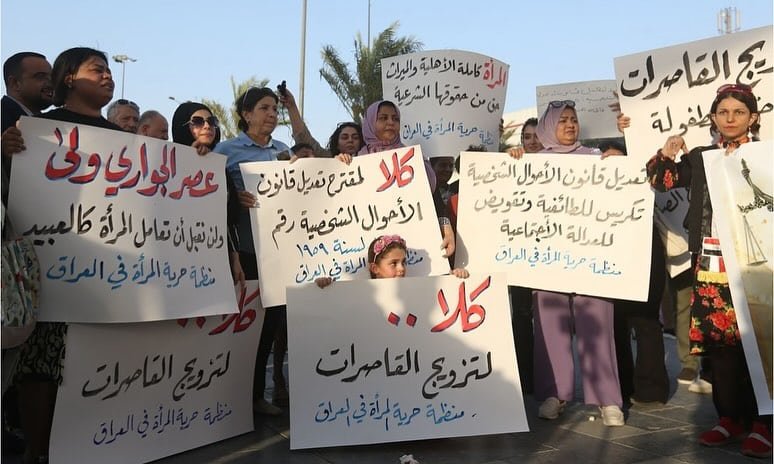Iraq’s Jaafari Law Triggers Flight of Hundreds of Mothers to Kurdistan

Since the enactment of Iraq’s controversial Jaafari Personal Status Law forty days ago, more than 800 mothers have fled Baghdad and other southern and western provinces, relocating to the Kurdistan Region with their children to avoid losing custody. According to al-Sumaria TV’s Hussam al-Haj, custody has already been stripped from around 4,400 mothers under the new legal framework.
Context: In January 2025, the Iraqi parliament amended the long-standing Personal Status Law No. 188 (1959), which for decades served as a unified civil code governing marriage, divorce, inheritance, and custody for all Iraqis. The amendment allows Muslim couples, when registering their marriage, to choose between Sunni or Shiʿa jurisprudence. In the case of Shiʿa families, this means applying the Jaafari school of Islamic law to all family-related matters.
Crucially, the amendment also permits either spouse—husband or wife—to transfer their marriage contract to the Jaafari code without the other’s consent or even knowledge. Rights advocates argue this provision opens the door for unilateral exploitation, especially as the Jaafari code significantly disadvantages women in matters of custody, alimony, inheritance, and divorce, compared with Iraq’s civil framework.
Analysis: Within just forty days of its enforcement, hundreds—possibly thousands—of husbands have reportedly petitioned courts to transfer their contracts to the Jaafari system, effectively depriving their wives of key legal protections, including alimony, inheritance rights, and child custody.
From a legislative-impact perspective, these early outcomes validate long-standing fears that the new law would sharply erode women’s rights. The fact that nearly all transfer requests have come from men underscores the gendered imbalance the code creates.
If accurate, the figure of 800 women fleeing their homes in the first forty days indicates a rapidly unfolding humanitarian and social crisis. These displaced mothers now face joblessness, lack of health care, and absence of social protection, while their children—already affected by family separation—are now also victims of displacement.
As Iraq enters its November 2025 election season, the Shiite-dominated parties that championed the amendment are likely to downplay or suppress such reports while turning to populist rhetoric to secure votes. Ironically, the Jaafari law itself was a product of pre-election populism, and its consequences are now beginning to manifest in stark human terms.









